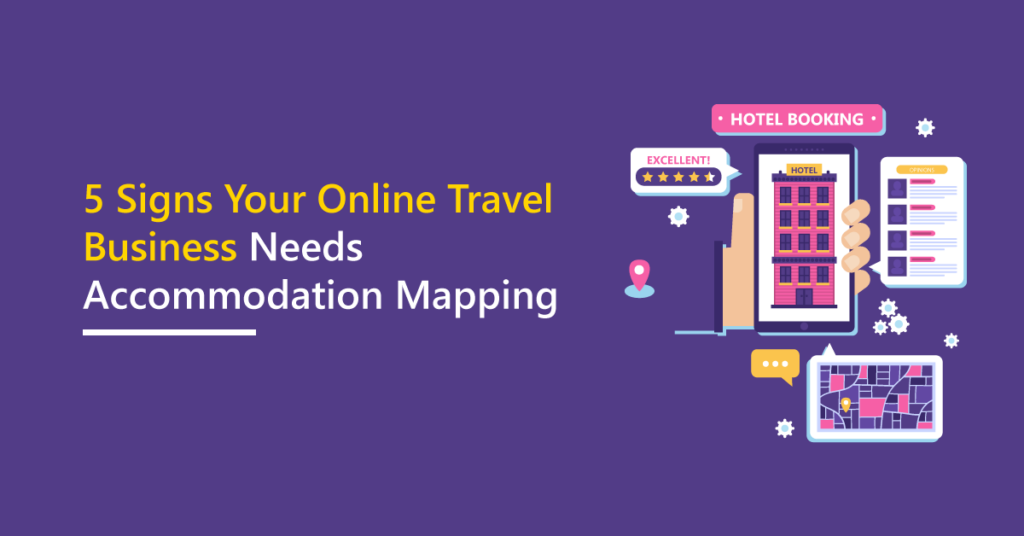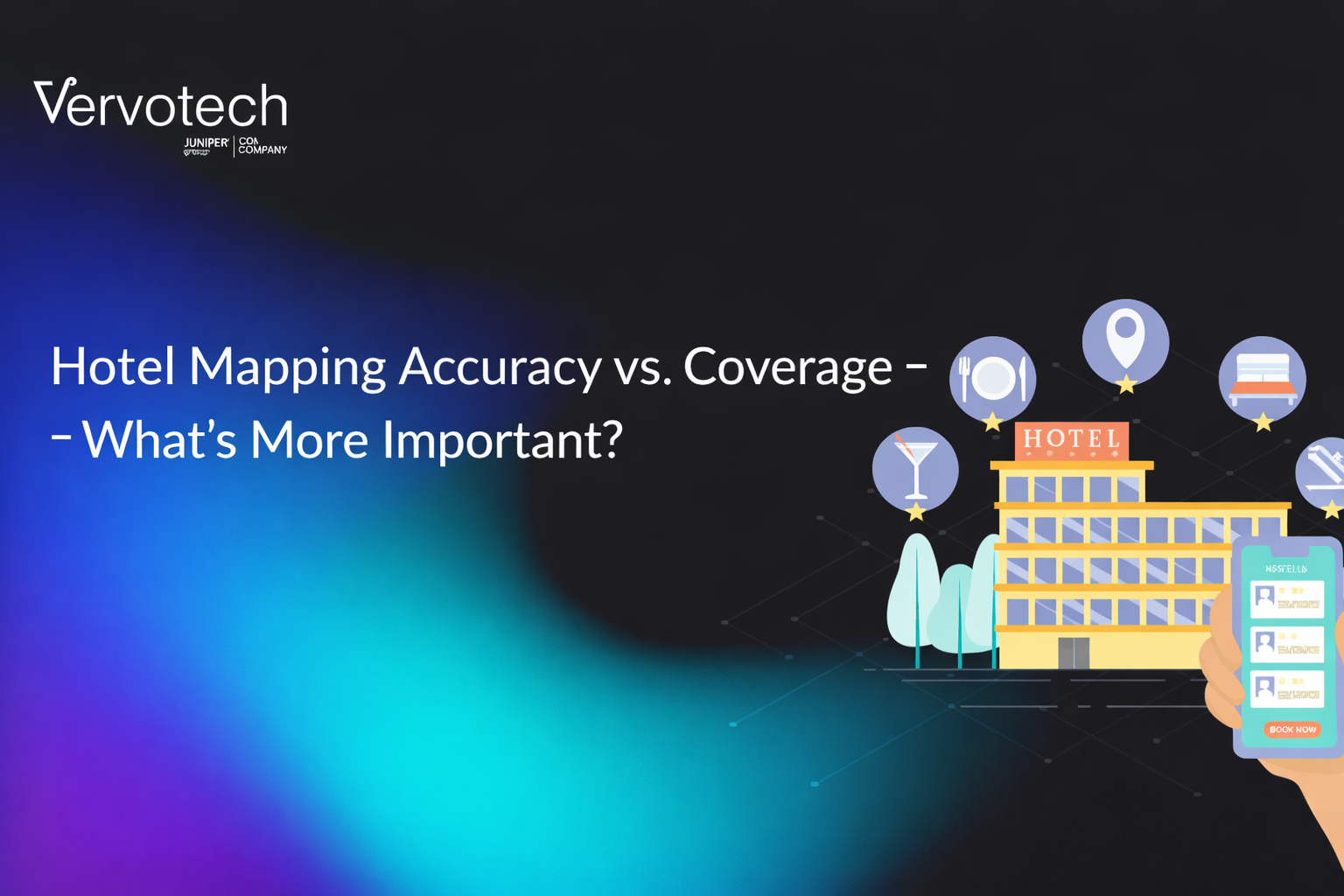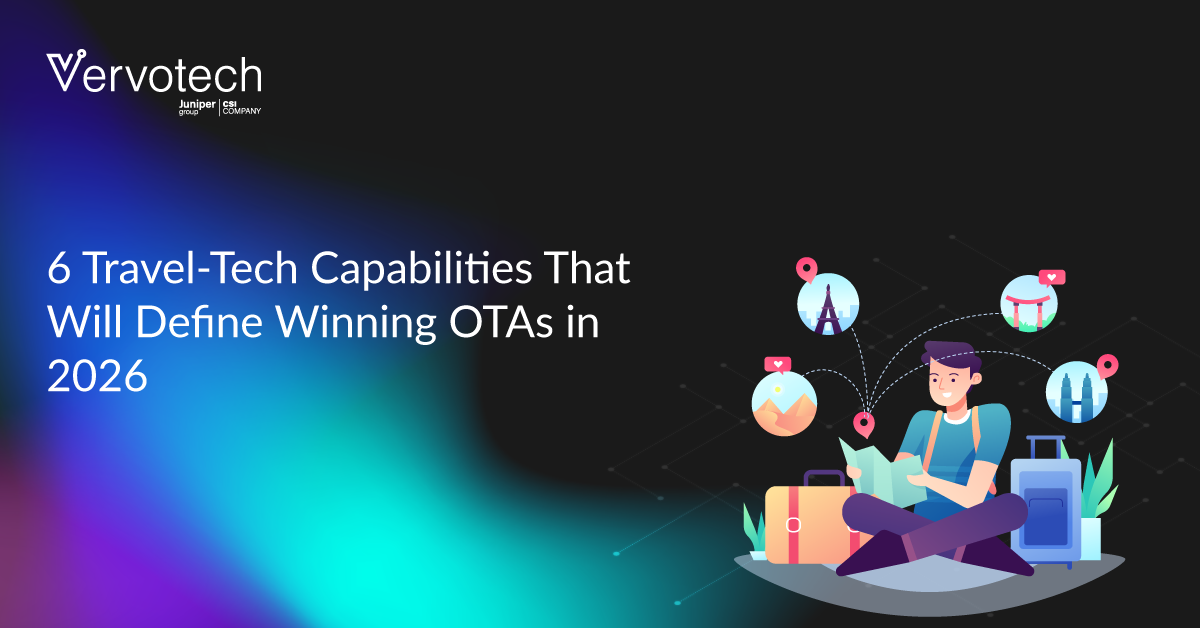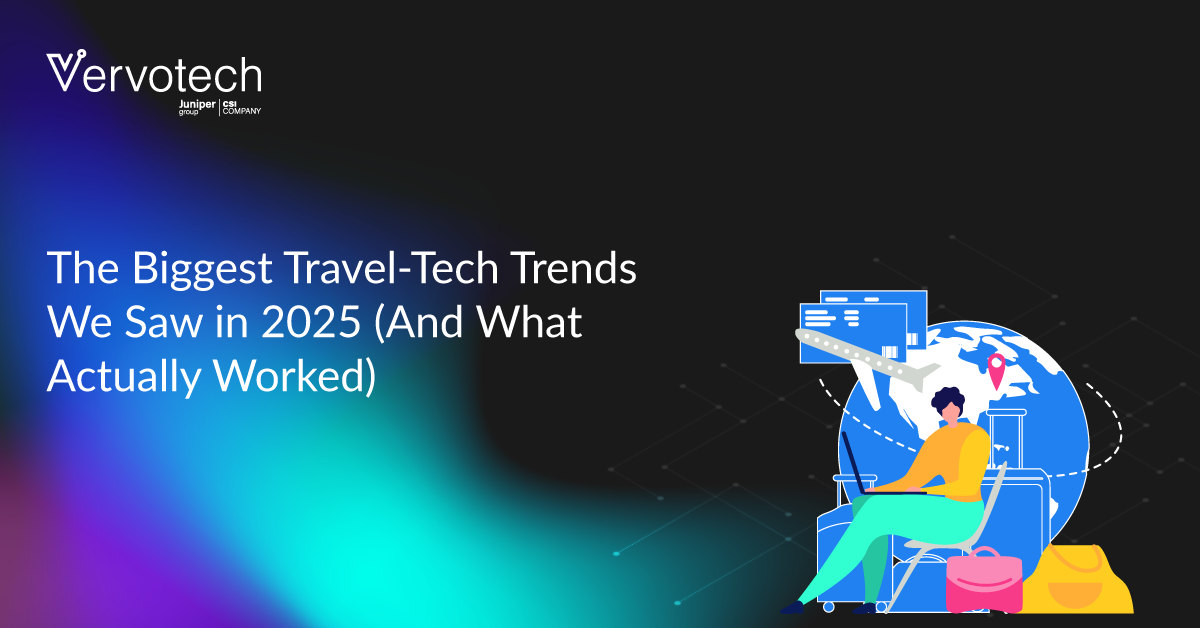If you’re in the process of (or thinking about) building your online hotel booking platform or have already built one, then this blog is for you.
Here’s why: We understand that there’s a lot that goes into ensuring a seamless hotel booking experience, including a user-friendly interface, standardized hotel & room content, robust search functionality, rich visuals, etc. Using reliable hotel APIs can ensure all this and more.
In this blog, we are going to explore six Hotel APIs that can make or break a seamless hotel booking experience for your users.
Let’s get started!
List of 6 Hotel APIs to Ensure a Seamless Hotel Booking Experience
Below is a list of 6 essential hotel APIs that can help you streamline the booking process, improve data accuracy, and enhance customer satisfaction. Explore away!
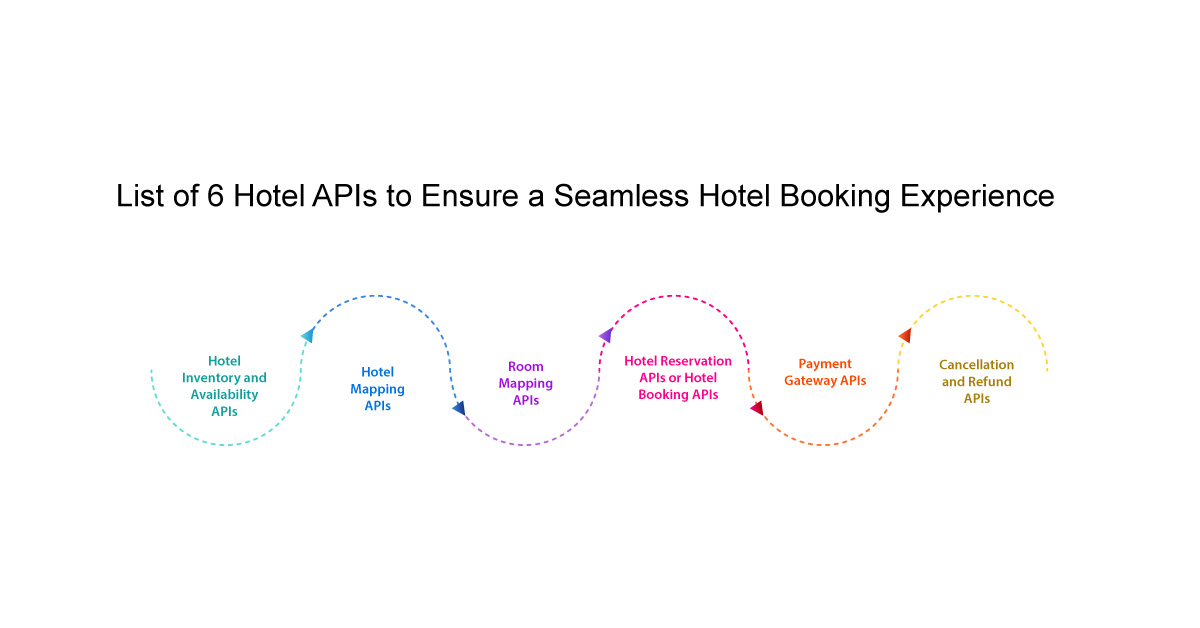
1. Hotel Inventory and Availability APIs
Hotel Inventory APIs give you access to the current availability and inventory of hotel rooms. They ensure that the rooms listed on your platform are up to date, preventing double bookings and showing users only available rooms.
Key Features of Hotel Inventory APIs:
- Real-time room availability updates.
- Syncing with hotel property management systems.
- Filters for different room types and dates.
- Support for multiple hotels or chains.
- Availability updates across multiple platforms.
Why Use Hotel Inventory APIs?
These APIs ensure that users can only book rooms that are actually available, providing a seamless experience by preventing booking errors. They also make it easier to show real-time room availability across multiple devices and platforms.
Examples of Hotel Inventory APIs:
2. Hotel Mapping APIs
Hotel Mapping APIs connect a booking platform to a hotel’s database, allowing for accurate representation of the hotel’s offerings, such as room types, pricing, and services. They automate the process of collecting, standardizing, and categorizing hotel data from various suppliers, ensuring a seamless integration of hotel content across platforms. Hotel Mapping APIs leverage AI to process key attributes like amenities, ratings, and policies, grouping similar hotels for easy access.
Key Features of Hotel Mapping APIs:
- Links hotel data (like rooms and amenities) with external platforms.
- Syncs information such as price, descriptions, and features.
- Provides data on hotel locations, policies, and amenities.
- Standardizes room categories for easy comparison.
- Supports multi-language and multi-currency setups.
Why Use Hotel Mapping APIs?
Hotel Mapping APIs help avoid mismatches between what the customer sees and what’s available by ensuring that your platform has accurate and consistent hotel data. They also allow you to offer a more personalized experience based on user preferences.
Examples of Hotel Mapping APIs:
3. Room Mapping APIs
Room Mapping APIs allow hotel booking platforms to organize and synchronize room-level data across various hotel suppliers. These APIs help map specific room attributes, such as size, amenities, bed types, and availability, into a standardized format. These API ensures that each room’s details are consistent and available for display in real-time.
Key Features of Room Mapping APIs:
- Maps individual room types to external systems.
- Real-time price and availability updates.
- Details on bed types, amenities, and layout.
- Allows filtering by room preferences (e.g., ocean view, suite).
- Room categorization (standard, deluxe, etc.).
Why Use Room Mapping APIs?
Room Mapping APIs help ensure accurate room details to users, which ensures that they can find exactly what they want. This reduces confusion and enhances the booking experience by offering precise room options based on availability.
Examples of Room Mapping APIs:
4. Hotel Reservation APIs or Hotel Booking APIs
Hotel Reservation APIs handle the actual process of booking a room. They allow users to select a room, enter payment details, and confirm the reservation in real time.
Key Features of Hotel Booking APIs:
- Secure and efficient room booking.
- Integration with payment systems for booking confirmation.
- Confirmation and cancellation email notifications.
- Real-time booking and availability checks.
- Multi-platform booking (mobile, web, etc.).
Why Use Hotel Booking APIs?
These APIs make the booking process simple and smooth. They ensure that bookings are processed securely, providing users with immediate confirmation and reducing the risk of errors like overbooking or payment issues.
Examples Hotel Booking APIs:
5. Payment Gateway APIs
Payment Gateway APIs process the payments made during booking. These APIs integrate with your platform to allow secure transactions and support multiple payment methods, including credit/debit cards, wallets, and more.
Key Features of Payment Gateway APIs:
- Secure payment processing (PCI-DSS compliant).
- Multiple payment options (credit cards, debit cards, PayPal, etc.).
- Real-time transaction confirmation.
- Support for refunds and partial payments.
- Multi-currency and multi-language support.
Why Use Payment Gateway APIs?
Payment Gateway APIs ensure that your users can make bookings with peace of mind, knowing their payment information is securely processed. They enable a smooth and quick transaction process that’s essential for a seamless booking experience.
Examples of Payment Gateway APIs:
6. Cancellation and Refund APIs
These APIs handle booking cancellations and refund processing. They enable customers to cancel their bookings and automatically initiate refund requests based on the hotel’s cancellation policy.
Key Features of Cancellation & Refund APIs:
- Automated cancellation and refund processing.
- Support for different refund policies (partial or full).
- Real-time status updates for cancellations.
- Integration with booking systems to manage cancellations.
- Email notifications for both users and hotels.
Why Use Cancellation & Refund APIs?
Cancellation and Refund APIs make it easy for users to cancel bookings and get refunds when needed. This ensures a smooth process for users who change their plans, enhancing the overall customer experience.
Examples Cancellation & Refund APIs:
Expedia API (for cancellation)
Booking.com API (for cancellations and refunds)
So that was the list!
Take Away
Integrating advanced APIs into your hotel booking platform is essential for creating a seamless, user-friendly experience. From real-time availability updates to secure payment processing and easy cancellations, these APIs not only enhance the efficiency of your platform but also help build trust with customers by ensuring accuracy and convenience.
Whether you’re looking to enhance data accuracy, improve customer service, or drive more bookings, utilizing the right hotel APIs can significantly elevate the overall experience for both guests and businesses alike.
Take the next step toward optimizing your online travel business

